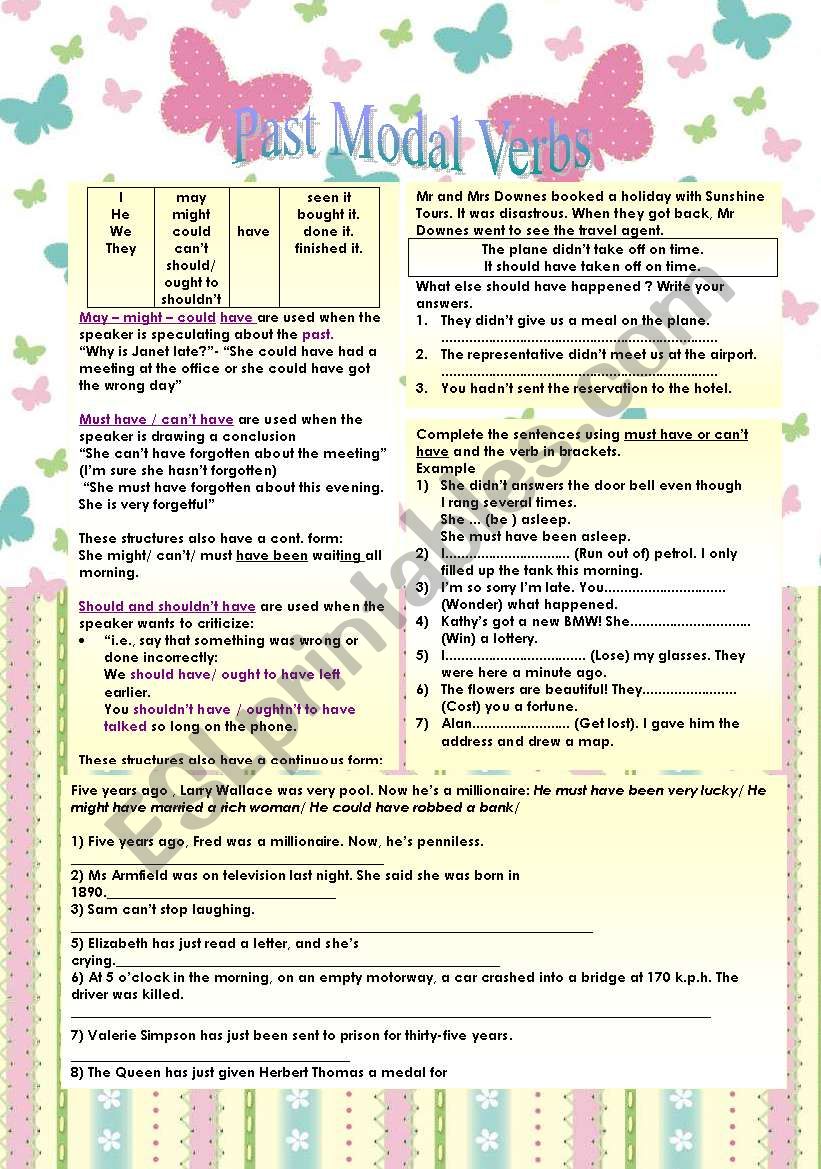

Give each group the name of a place (e.g. One activity to get students to practise modal verbs of obligation is to ask them to make rules. To get them started, give a few examples of your own, e.g. To practise should have you could ask students to think about regrets they’ve had in the past. When groups have finished, ask them to read out the problem and the advice. Tell them to select two and give advice to the writer about their problem (including modal verbs such as should, ought to, shouldn’t, etc). Give each group four ‘problems’ at random. Collect all the slips of paper and put the students into groups of four. They should write these on a slip of paper, but not write their name. Ask students to each write about a problem they have (real or imaginary) that they would like advice on.As a follow-up, ask students to write their own advice to those people. When they have finished, ask them to go through and find any modal verbs in the text.

Mix up the questions and the answers and distribute them to the students, who have to match them.

Select some questions and the answers given (better if they are short). You can do this by entering ‘ agony aunt’ or ‘ Dear Abby’ in a search engine. Find some original letters and their answers on the internet.There are two ways you can use these in class. Many newspapers have ‘agony aunt’ columns (sometimes called ‘Dear Abby’ columns in North America). One of the most popular and common activities to practise the modal verb should (and sometimes ought to) are situations in which people ask for advice. You could also do this with samples of students’ writing. Sustainable Development and Global Citizenship.


 0 kommentar(er)
0 kommentar(er)
